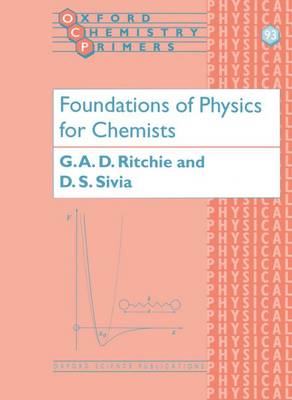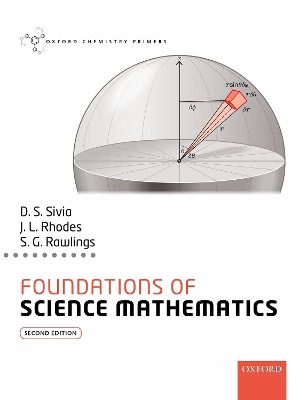Oxford Chemistry Primers
1 primary work • 2 total works
Book 93
Foundations of Physics for Chemists presents the fundamental physics required for a full understanding of a diverse range of chemical phenomena and techniques such as diffraction, reaction rates and nuclear magnetic resonance. The text begins with a discussion of classical and wave mechanics which allows quantum mechanics to be introduced at an early stage. The ideas presented in these early chapters are subsequently developed to deal with the traditional physics topics of kinetic theory, electrostatics, magnetism and optics. However, the text maintains a distinct chemical perspecive by focusing on relevant chemical examples rather than the more hypothetical examples favoured by the majority of introductory physics texts. The students will find the information presented directly applicable to the concepts and examples that they will encounter throughout an undergraduate course in chemistry.
Foundations of Science Mathematics OCP 2e
by Devinder Sivia, Joanna Rhodes, and Steve Rawlings
Published 12 November 2020
Mathematics plays a key part in every quantitative and theoretical subject, and is taught to all science and engineering students. Foundations of Science Mathematics bridges the gap between school and university, and spans a large range of topics, from basic arithmetic and algebra to calculus, Fourier transforms, and elementary data analysis. Problems and worked solutions are presented in an informal and readable tutorial style, making the text accessible to
the novice, while its concise nature ensures that it is a useful reference for the experienced professional.
The first edition primer and its companion 'Worked Problems' workbook are combined in this new edition, and a new chapter on data analysis has been added to ensure the book remains as comprehensive and useful to students as possible.
the novice, while its concise nature ensures that it is a useful reference for the experienced professional.
The first edition primer and its companion 'Worked Problems' workbook are combined in this new edition, and a new chapter on data analysis has been added to ensure the book remains as comprehensive and useful to students as possible.

